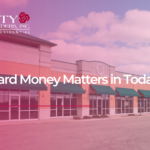A commercial mortgage can help you quickly acquire or develop an income-generating commercial property. However, you may need to meet certain requirements to get this type of financing, including a down payment amount. Here is a look at how much down payment you will need and the benefits of paying a higher down payment.
Is a Commercial Mortgage Down Payment Required?
Yes, usually, an upfront down payment is required for a commercial loan. However, you can negotiate with your lender to lower the down payment or increase the loan amount.
Amount of Down Payment Required for a Commercial Mortgage
Most lenders require a 20% to 40% down payment to issue a mortgage, but many factors are at play. For example, the type of commercial property you’re purchasing, such as a gas station or office building, determines the required upfront cost. Your credit history will also play into the deposit.
If your lender assesses that you can’t comfortably manage large monthly payments, they’ll usually offer you a smaller mortgage. In turn, you’ll have to pay a higher down payment for the commercial loan. However, you can negotiate with the lender for a lower down payment amount.
Advantages of Paying a Higher Down Payment
Most commercial mortgage lenders require high down payment, meaning that you need to raise a significant sum of money beforehand. However, paying a higher down payment reduces your monthly repayments and interest. For help navigating the complexities of the commercial mortgage process, consider engaging an experienced specialist. An expert can help you make an informed choice and find the best deals on the market, including lower interest rates for commercial mortgages with smaller down payment.
Does a Commercial Mortgage Require Security?
Your commercial mortgage can be secured or unsecured depending on factors like the loan amount. Often, the property you’re buying is sufficient security for most types of real estate financing. There are different forms of security for commercial mortgages. Some lenders will even ask you to secure the full mortgage amount.
In that case, your security options may include equity in other properties you own or a pledge of stock or license shares. You may also use other business assets as collateral for the commercial property loan.
How to Raise Funds for a Commercial Mortgage Down Payment
When you’re asked to pay a high down payment for your commercial mortgage, you may sometimes be unable to draw from your company’s cash reserves. Therefore, you’ll have to find an alternative source of financing for it. For example, if a lender offers 75% of the property’s loan to value (LTV), you’ll need to finance the remainder of the payment from a different source.
Some viable sources to raise the amount required upfront include:
- Working capital
- Investors
- Development funds
- Alternative finance, such as a bridging loan
A bridging loan can be an option for you if you’re developing or expanding a commercial property. With the money, you can quickly begin construction work when you’re unable to get a mortgage right away.
What Are the Typical Uses of a Commercial Mortgage?
Commercial mortgages can finance different types of real estate property investments. You can use the loan to purchase a commercial building or land that will be utilized for business purposes.
To learn more about security requirements for a commercial mortgage, contact our experts at Fidelity Mortgage Lenders today. We offer some of the most flexible commercial loan terms and rates on the market.
Comments are closed.








